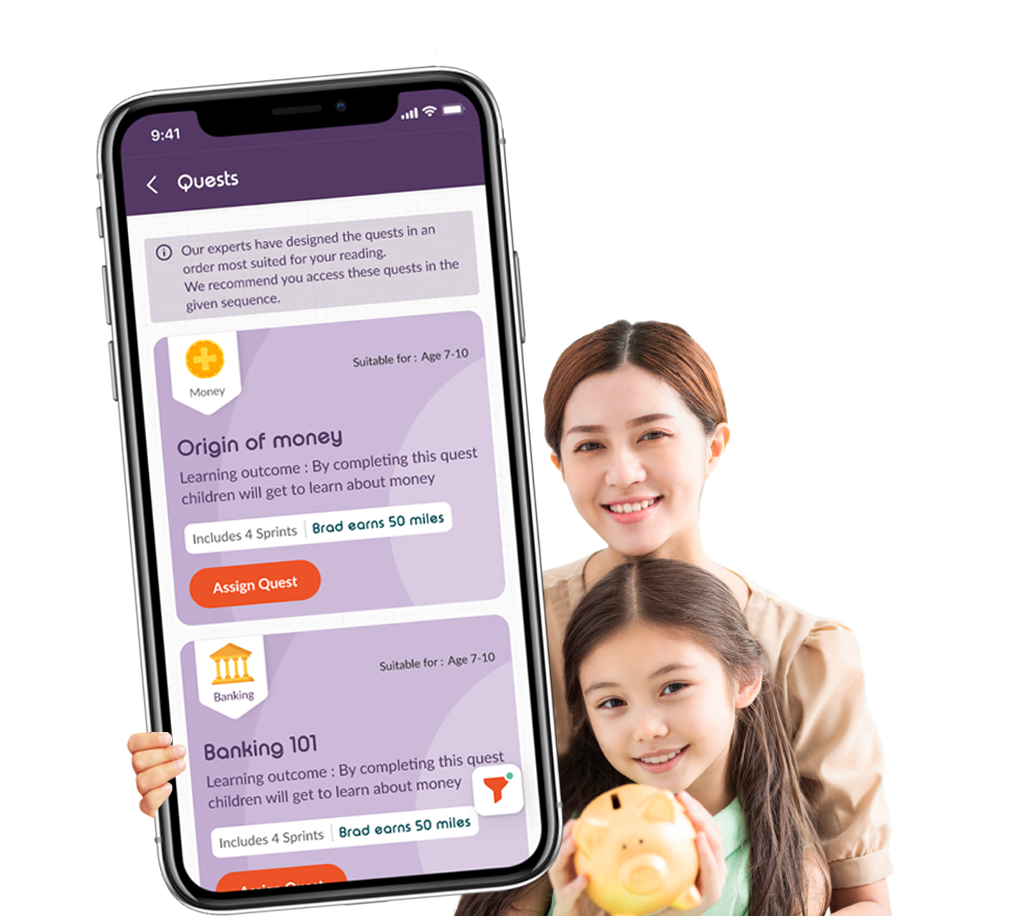A Guide to Teaching Your Kids Good Money Habits
A good money habit is one of the most important things you can teach your children. The idea, however, is terrifying for many parents. A survey by T. Rowe Price reported that 41% of the parents said that they were reluctant to talk to their children about money matters.
As much as this can be prompted by a genuine concern about not being good enough role models, teaching them money habits through your own experience is crucial for setting a strong foundation. According to research, money habits and attitudes in kids are already formed by the age of 7. Therefore, teaching them a healthy attitude towards finances and making them understand the value of money ensures a lifetime of financial fitness.
The question still stands – how exactly, can parents instill good money habits in their children?
Tip #1: The ultimate combo of fun + learning
All kids love to have fun. By making sure that their interaction with money is interesting, you can introduce good money habits from an early age. Teaching them about money, its value, and its use when they can count is a good way to start. You can also play money-related games, like Monopoly, with them.
Tip #2: Differentiating needs from wants
By teaching them to differentiate between what they want and what they need, they can eventually learn to prioritize. Introducing the concept can be done by quizzing them during a grocery run or at home by simply asking them to differentiate the items around them into needs or wants.
Tip #3: Leading by example
Most of the things are learned from home when it comes to finances. Therefore, their opinion, perspective, and habits are greatly shaped by the way their parents handle their money. Children are excellent observers, so teaching them by doing it, can be a great way to make them adopt healthy habits of saving and conscious spending.
Tip #4: The incentivizing tool of pocket money
By giving them pocket money, you can further teach them to prioritize their expenses and learn to budget and exercise financial independence. Advise your children to keep aside a part of their weekly/monthly allowance, as well as set saving goals with a reward for younger kids to help them develop skills of financial responsibility.
Tip #5: Small goals = Big accomplishments
In addition to introducing concepts like budgeting and saving, setting small goals could help maintain their commitment to healthy financial habits. By rewarding their efforts, you can reinforce the importance of saving and budgeting, as well as encourage them to build on their knowledge to prevent financial instability in the future.
With Milestone app, you can effortlessly start your kid’s financial journey! This app helps you track your children’s earning, savings goals, and budgeting plans, all in one place.
<Start Today!>
 Milestone Edutech Pte. Ltd.
Milestone Edutech Pte. Ltd.JustCo, Centrepoint Singapore,
176 Orchard road, #04-04,
Singapore. 238843

COPYRIGHT 2021-2022 I Privacy Policy I Terms and Conditions




